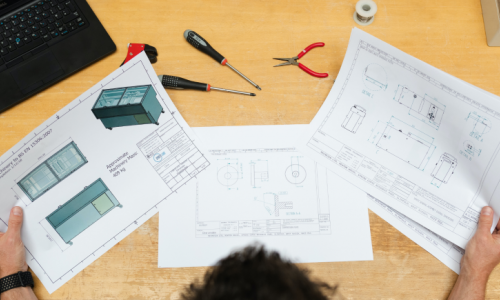
The Lindskoog family tree is replete with musicians and formal musical education. Despite this, the first musical instrument I ever played seriously (outside of the recorder when I was about 10, and let's face it... that doesn't count) was the bass guitar when I was about 15 or 16. It was the early days of high school, and two friends and I decided we wanted to do the cliché thing and start a rock band.
So, I started saving my meager paychecks, and after a few months, my dad and I took a trip to the music store I'll never forget. It was a memorable experience, with many sensory images I'll hold on to as long as I can: the clumsiness of my fingers test playing the different models, the difficulty of choosing and balancing aesthetics with sound and "feel," the satisfyingly thick wad of cash after draining my bank account (and the feeling of handing it all over after those months of saving!), and the sheer excitement of walking out of the store and driving home with my dad. I still have that guitar - even though it's actually a piece of crap instrument, I think I'd have a hard time selling it due to these sentimental memories.
I was terrible, of course. I'd tried playing a bass a couple of times, and my best friend had been teaching me a few basics on his acoustic guitar, but having that bass guitar at home and spending as much time with it as I did (I practiced every day, I swear!), I quickly realized that I wasn't going to become good at it anytime soon.
I Sucked
It was a sobering realization. I had known it would be hard work, of course. What I didn't know was that practicing isn't fun - it's monotonous, frustrating, painful (you have to develop calluses on your fingers in order to play for any length of time, and the only way to do that is to go through a series of blisters first), and marked by slow and nonlinear improvements. There were many moments I came close to giving up. How was I supposed to perform in front of people if I was having this much difficulty without an audience?
I didn't love playing at that point in time. I had a vested interest and a strong desire to get better, sure, but it didn't become a passion until I gained a certain degree of competence. Sticking with something to the point where you develop enough skill to love it isn't easy, and this is especially true when considering career choices. So, it's not that surprising to hear people expressing concern that because they don't feel 100% thrilled, competent, and impassioned by their work. If they don't love it right away, they feel they must not be doing the right thing!
It's understandable, in a way. After all, who doesn't love a good sense of immediate reward and validation - especially when it comes to something with as many implications for your life as your career choice?
However, there's another, more harmful side to harbouring such lofty vocational expectations.
With Persistence Comes Passion
Despite the fact that I sucked for a long time at bass guitar, I convinced myself to be persistent. After months of plucking (or slapping!) away, I became noticeably more comfortable. I picked up a few basic techniques, and I started to get small doses of reward when jam sessions would go well or we would do a small performance that was well received. After a year or so, we had our first "gig" and it was one of the most exhilarating experiences of my life, period. We'd go on to play a few more shows, and I started teaching myself to play other instruments - electric guitar and drums. It was easily one of the funnest times of my life, and it wouldn't have been possible without the "grinding out" period of those early days of practice.
I know I wrote recently about not wanting to read any more "Gen Y" articles, but a colleague forwarded me one anyway that I think sums up the issue nicely. An excerpt:
"The early stages of a fantastic career might not feel fantastic at all, a reality that clashes with the fantasy world implied by the advice to “follow your passion” — an alternate universe where there’s a perfect job waiting for you, one that you’ll love right away once you discover it."
The take away message? Sometimes you've just got to stick with something. Trust the intuition that got you into a situation in the first place. Don't allow the necessary process of learning and building skills and expertise scare you away from something just because it might be hard.
If you've paid careful attention to the clues in your life that have told you that your choice was a sound one, that's as good a confirmation as any that the necessarily unpleasant development phase could lead to something very special. Being at the bottom end of all that can be hard, sure. But the reward can be oh so worth it.
















